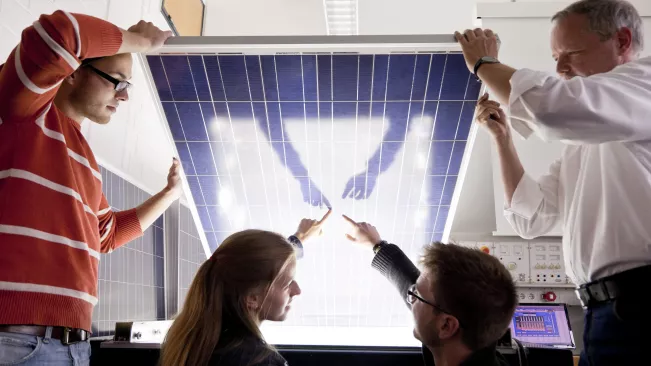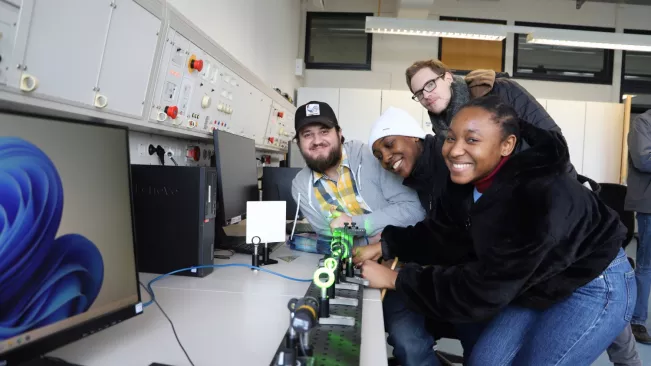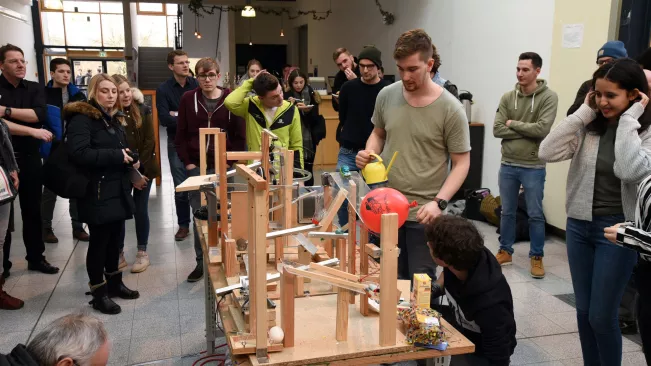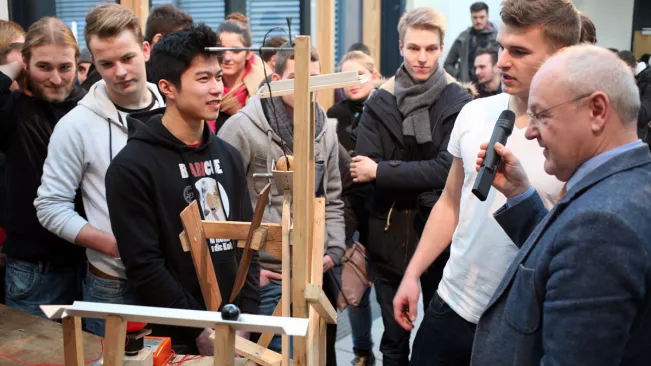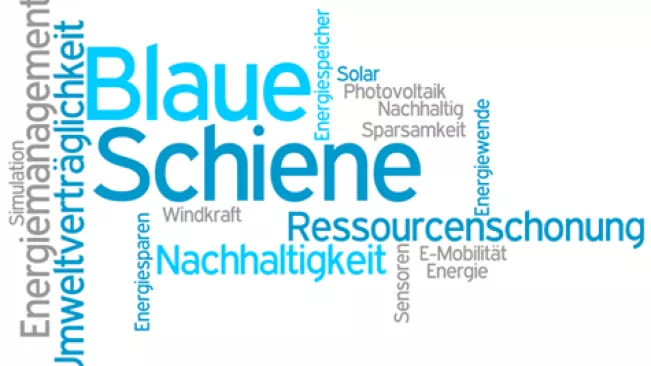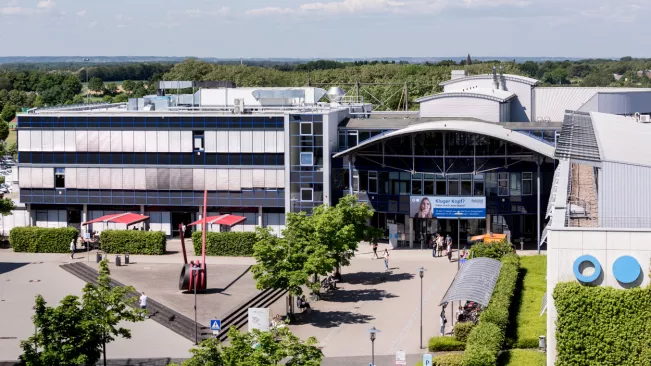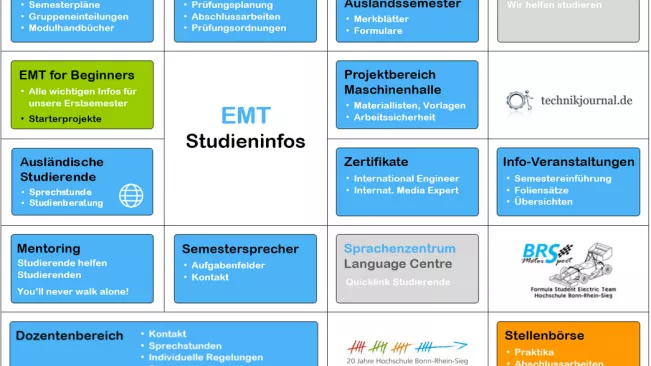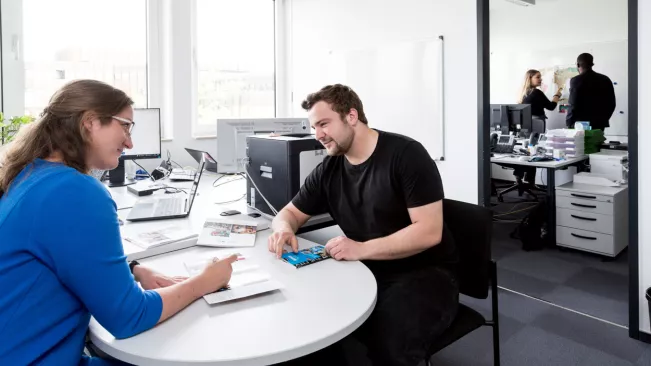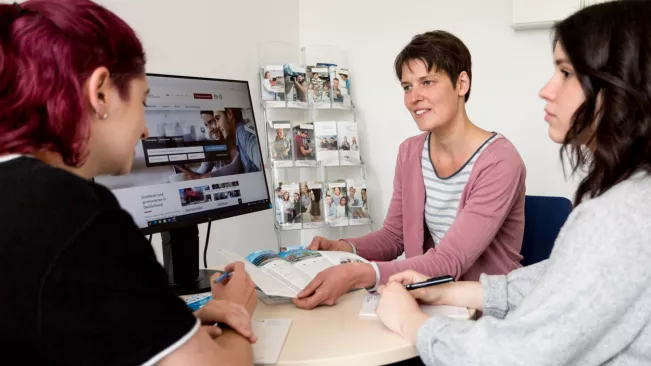Department of Engineering and Communication
Sustainable Engineering (BEng)

Programme content
During the first seven semesters, students learn the engineering and science basics; in addition, topics such as renewable energies, ethics and environment science provide the basis for understanding sustainability.
During the third and fourth semester, the focus is on modules such as sustainability and life cycle analyses or energy efficient residential buildings. During this year of study, modules such as measurement and regulation technology and thermodynamics provide an engineering background. In the elected subjects and in projects, students have the opportunity to select topics according to their particular area of interest.
In the fifth semester, the students try out what they have learned in practice. During a 20-week practical semester, they learn about everyday working life in a company. Alternatively, they can complete a study semester abroad.
During the sixth and seventh semesters, further knowledge is gained in efficient traffic systems, method and environment technology and technologies used in sustainable development. Additional elected subjects and courses, such as method training or extracurricular subjects, round off the programme of study. At the end of the programme, students qualify with their bachelor thesis and the colloquium.
Practical orientation
An essential part of the programme is applying what students learn in a practical, solution-oriented way. In practical laboratory tests, for example, they study renewable energies and produce environmental balances. Every semester, there are three project weeks, which in each case alternate with four lecture weeks (our award-winning Four-One-Model). They offer the option of working on projects in small teams. Final theses can be completed in cooperation with businesses or research institutes.
Perspectives and job prospects
Graduates of our bachelor’s degree programme in Sustainable Engineering (BEng) are qualified to work in may different sectors. They can choose from careers in energy production and distribution and work in industrial companies, planning offices and energy consultancy. There is also the option of working in product development and product management in the production industry. The study programme also offers good opportunities for work in municipal utilities, public authorities and local communities in the field of energy and mobility.
At the University, ongoing master's degree programmes are already on offer; a specific master's programme as a follow-up to the bachelor’s degree programme in Sustainable Engineering (BEng) is currently being planned.
Study Facts
Degree
Bachelor's degree
Standard period of study
Seven semesters / 210 ECTS
Language skills
German
Campus
Sankt Augustin
Start of course
Winter term
Semester contribution
Prerequisites
Enrolment
Language skills
Accreditation
Contact
Departmental Office IWK
Campus
Sankt Augustin
Room
A 157
Opening hours
Monday to Thursday: 09:00 - 15:00 (core opening hours)
Friday: 09:00 - 14:00 Uhr (core opening hours)
Department's Study Advice IWK
Campus
Sankt Augustin
Contact to the Registrar's Office
Opening hours
Telephone consultation hours: Monday - Friday: 10:00 - 12:00, Monday - Thursday: 14:00 - 15:00
Personal consultation hours by appointment only
Student Council IWK
Campus
Sankt Augustin
Room
A 041
Opening hours
Monday to Friday: 12 - 13 Uhr
"Studierwerkstatt"
Campus
Sankt Augustin
Room
A037
Documents
Links
Further links
